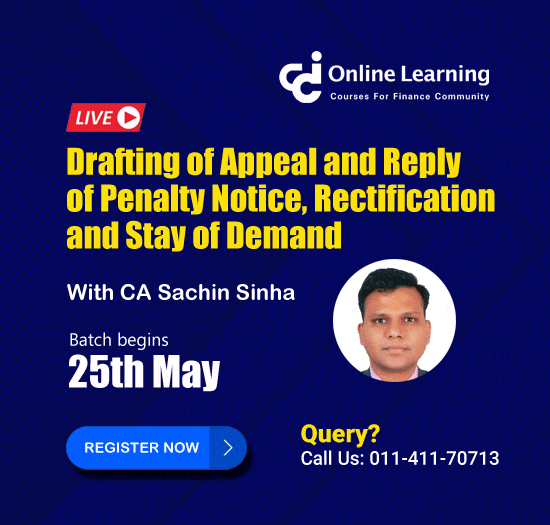Recent income tax judgments
As I write this missive, we have entered the year 2024, which marks a new beginning for everyone. Through this write-up, let us analyze key income tax judgments from the income tax appellate tribunal, the high court, and the Supreme Court. This judgment gives an overview of how the Income Tax Act (''Act'') is dynamic and subject to changes. This judgment would also convey how to give transaction-based advisory or consulting advice for a particular transaction.
1. Indian Chamber of Commerce vs. DCIT (ITA no. 933&934/Kol/2023-2013-14&2014-15-Kolkata ITAT)
- It was held by Kolkata ITAT that activities pertaining to conducting seminars, conferences, and other programs to protect the interest of trade fall towards the advancement of other objects of general public utility. Held, the same is charitable and entitled to exemption under 2(15) of the Act.
- It was also held that the sale consideration of an old asset for the purpose of applying income was also treated as having been made for a charitable purpose.

2. Madras Gymkhana Club vs. DCIT (civil appeal no. 5202-5209/2023-Supreme Court)
- This was a review petition filed by Madras Gymkhana Club (''assessee'') against the judgment of Secunderabad Club.
- The judgment laid by the Honorable Supreme Court for Secunderabad Club stands valid, which laid that the mutuality test does not apply when the club receives money from members and invests in fixed deposits from banks.
3. DCIT vs. Sterlite Technologies Limited (SLP (Civil) diary no. 51920/2023-Supreme Court)
- The Supreme Court held that an assessment order passed in the name of a non-existing entity is illegal and void, and that framing an assessment on a non-existing entity is a jurisdictional defect that cannot be cured under Section 292B.
4. ACIT vs. Nishant Kandia (ITA No. 2155/Mum/2023-2013-14-Mumbai ITAT)
- It was held by Mumbai ITAT that when an individual (an Indian citizen) stays in India for 176 days and for the rest of the days he goes to Mauritius as an investor, he still qualifies to be a non-resident. The judgment of the Supreme Court held that the term employment also includes business, profession, and vocation.
5. BCP Singapore FVCI Pte Ltd vs. ACIT (ITA no. 449/del/2023:AY 2017-18 Delhi ITAT)
- It was held by Delhi ITAT that there is no escapement of income in the hands of a Singaporean entity on repatriating Rs 203.56 crores arising from the redemption of a non-convertible debenture where the assessee did not file a return.
- It was held by ITAT that there was no income accrued, arose, or could be deemed to accrue or arise on redemption of the NCDs, and no claim has been made under any DTAA. It also concludes that there was no escapement of income during the year, and hence, the notice under Section 148 is void ab initio, and consequently, the assessment is a nullity.
6. Coda Global LLC vs. DCIT (writ petition no. 26634 of 2023-Madras High Court)
- It was held by the Mumbai High Court that the assessee is entitled to 6% interest under Section 244A on refunds to non-resident assessees up to the actual date of refund due to the delay caused by CPC to refund tax despite the assessee's request to update a foreign bank account.
- Reliance was placed on the CBDT press release, which states that the assessee, even after providing a foreign bank account, shall be entitled to a refund.
7. Bar Council of India vs. CIT (exemption) (Delhi High Court)
- It was held by the Delhi High Court that the delay in filing Form 10 by the assessee was because the officials of the assessee failed to notice the amendments in the Act and rules.
- This arose because the assessee is a non-profit organization (like a trust under 12AA), and there was a delay in filing Form 10 because of an amendment made in the Finance Act 2016.
8. M/S Tata Sons Limited vs. CIT (ITA No. 3468/Mum/2016-AY 2009-10-Mumbai ITAT)
- It was held by the Mumbai ITAT that a reduction of capital is the extinguishment of the right to the shares, and it amounts to a transfer. The loss on reduction of shares is a capital loss and not a notional loss. When the assessee has not received any consideration on reduction of capital, its investment results in a capital loss, which has to be allowed or set off against any other capital gain.
- The order given by PCIT u/s 263 of the act is set aside, and the appeal of the assessee is allowed.








 CAclubindia
CAclubindia

